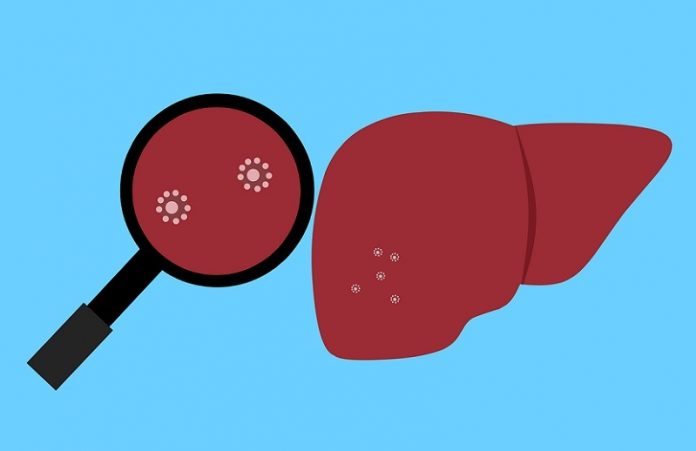
Scientists from the Leibniz Institute for Natural Product Research found a new way to effectively predict non-alcoholic fatty liver disease.
They found the human microbiome can provide information regarding the risk of non-alcoholic fatty liver disease.
They developed a model that can predict the possible course of the disease based on the microbial composition in the intestine.
The research is published in Science Translational Medicine and was conducted by Gianni Panagiotou et al.
Up to 25% of the global population are affected by non-alcoholic fatty liver disease (NAFLD), in which an increased amount of fat cells form in the liver.
It is the most common chronic liver disease in the industrialized countries of the world and, unlike alcoholic fatty liver disease, is not caused by high alcohol consumption.
In some people, undetected NAFLD can lead to liver scarring, liver cancer or liver failure.
In the study, the team analyzed stool and blood samples from 1200 people who were initially NAFLD-free.
When the people were re-examined four years later, the team found that 90 of them had since developed NAFLD.
Samples from those affected were compared to a control group of 90 people who did not have NAFLD at baseline or at the follow-up visit.
Using different methods, the researchers were able to find very subtle differences in the samples we took four years prior.
With this data, they were able to develop a model that can predict who will develop NAFLD in the future based on the microbiome with 80% certainty.
Currently, there are clinical models that use biochemical parameters in the blood to make a prediction with 60% accuracy.
The new model combines easily measurable information from the blood with data from the microbiome and can thus increase the reliability enormously.
Late stage non-alcoholic fatty liver disease is irreversible and in the worst cases can even lead to liver cancer.
People who already suffer from a precursor or are particularly at risk must therefore be identified early on in order to be able to counteract the disease.
People with pre-existing conditions such as type 2 diabetes, obesity, high blood pressure or dyslipidemia are particularly affected by fatty liver disease.
If you care about liver health, please read studies that people with diabetes need to prevent this dangerous liver disease and 5 big myths about liver detoxing you should know.
For more information about liver health, please see recent studies about oral diseases linked to a 75% increase in liver cancer risk, and results showing a new way to treat chronic liver disease.
Copyright © 2022 Knowridge Science Report. All rights reserved.



